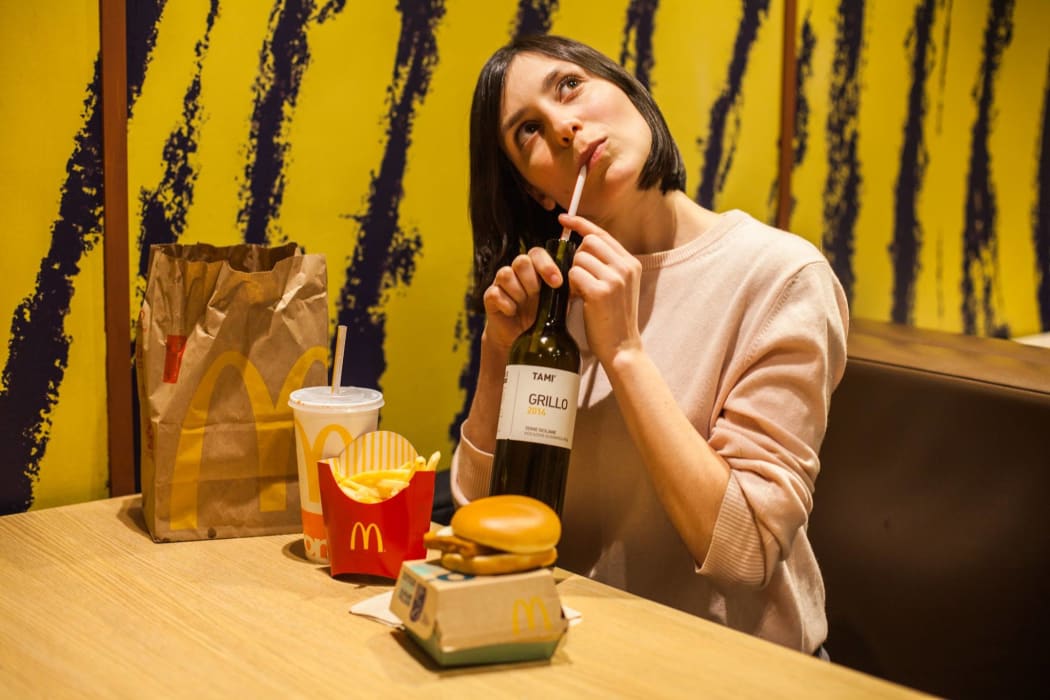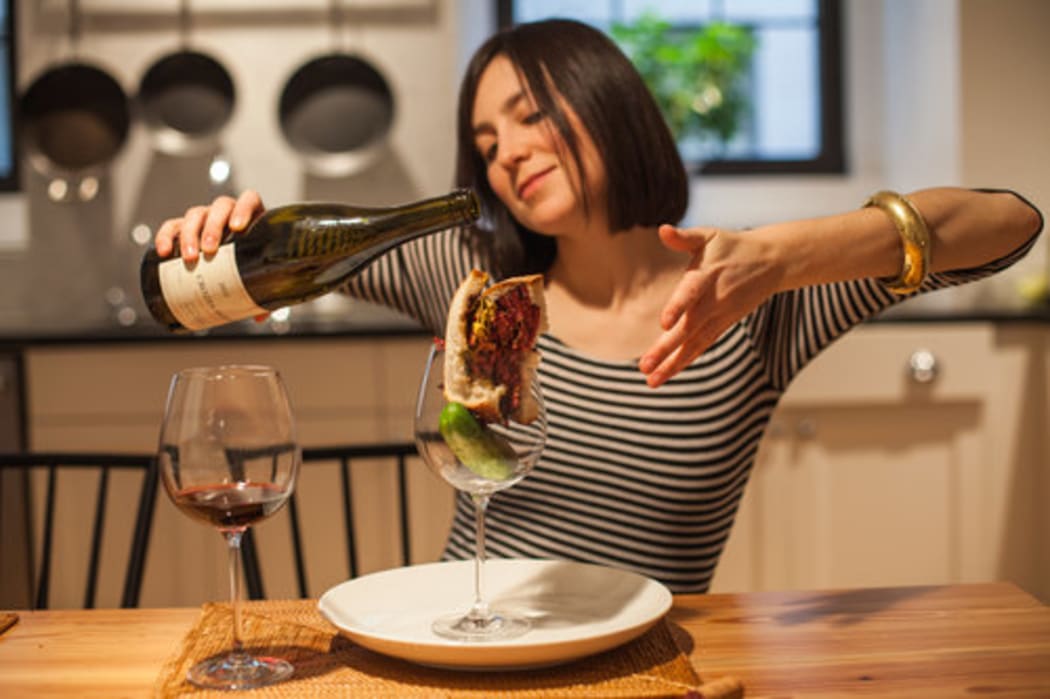From not being able to differentiate between boxed and bottled wine, Bianca Bosker is now a sommelier and self-described cork dork.
Bosker was the technology editor of The Huffington Post when she decide to leave her job for something with hints of folly and a finish of obsession.

Bianca Bosker Photo: Facebook
For 18 months she immersed herself in the world of fine wine to understand the passion it inspires and become a certified sommelier herself.
Her journey includes a few too many hangovers, and revelations about the history of wine, the science of smell, the pricing of plonk.
She writes about her experience in her new book, Cork Dork: A Wine-Fueled Adventure Among the Obsessive Sommeliers, Big Bottle Hunters, and Rogue Scientists Who Taught Me to Live for Taste.
Speaking to Jesse Mulligan, she says she was a total wine ignoramus before she began the project and wasn’t entirely sure what the difference was between bottled or boxed wine.
Bosker had to sit the exam which sets the gold standard among cork dorks, which involved a theory section, a blind tasting, and a service test.
“My training was with everything from these sommeliers to sensory scientists who took me through, really, the science of how we experience these vastly misunderstood senses of taste and smell, to also working the floor in restaurants.”
The way we talk about wine, in comparison to fruits, vegetables or animals, is relatively recent, Bosker says.
“It’s about as traditional as disco.”
While there is scientific basis for some scent comparisons, she says others are a stretch.
Listening to some sommeliers do blind circle tastings sounds like they’re reading from a wicken book of love spells, she says.
“Baby’s breath, sweat, you know, fresh tears… just totally crazy things.”
For those wanting to experience more of the nuances in a glass of wine, she recommends to start sniffing things.
“It’s called building your sensory memory… you’re never going to small green bell pepper in a glass of wine if you don’t know what green bell peppers smell like.”
She compares it to building an alphabet of smells.
“If you smell something and you say quince, or apple, what colour does it evoke? What shape does it make you think of? That is attaching meaning to the sense of smell that most of us have never really tuned in to.”
For an easy match when it comes to pairing food and wine, Bosker recommends choosing a wine that’s from the same country as the food.
“The flavours have really evolved in tandem with the cuisine.”
And Bosker says there’s plenty of scientific research which indicates the vessel that you drink your wine from plays a big role in its taste.
“If you’re looking for one type of glass, studies show the best to flatter a wine and get the most aromas really is one that’s fat around the middle and skinnier with a smaller circumference around the top.
“That helps concentrate the aromas.”
These days, Bosker says wine drinking has become more than just an exercise in consuming alcohol.
“When I started, the only thing I got out of a glass of wine was drunk. And now, a glass of wine is really an experience… it’s emotional, it’s intellectual.
“For me, now, every glass of wine has a story to tell.”

Bianca Bosker Photo: Bianca Bosker.com
Cheaper wines may only have a story Bosker is interested in for a few minutes, but she says the best wines encourage questions about the world.
“They transport you to through time and space without you ever leaving your seat.”
While Bosker never expected she would feel that way about wine, she says starting at the bottom and becoming a sommelier has made her think about the potential of wines - a mind-set she has now taken beyond the bottle.
“It’s by tuning into our senses that we learn to make sense of the world and it can start with a glass of wine, but it definitely doesn’t end there.”
Bosker now goes for ‘smell-walks’ around New York, and is far more aware of her surroundings. But living in such a big city and riding the subways, she says that’s not always a pleasant experience.
“I’m definitely more aware of the smell of stale sweat or fresh vomit or whatever happens to be there on the morning commute.”

